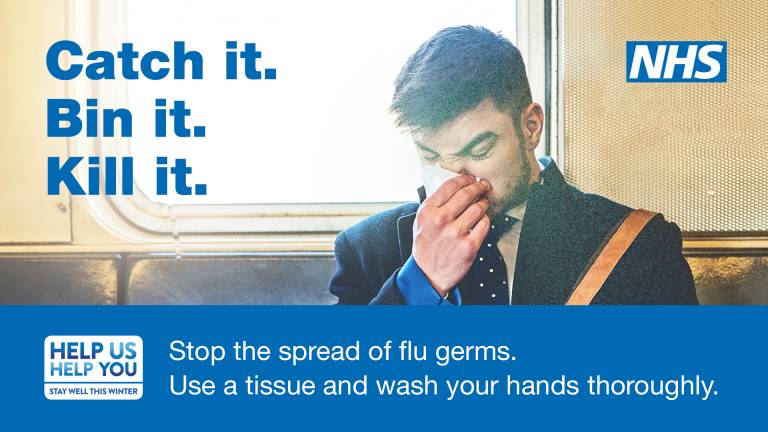In the UK, the flu vaccine is available each year. It is recommended to get the flu vaccine before outbreaks of flu have started. It takes up to two weeks after vaccination for you to be protected.
UCL Flu Vaccination Programme
UCL provide free flu vaccination vouchers for staff, students and PhD students. The programme runs over a winter period and involves collaborating with Boots Corporate Health.
Free Flu Vaccination for Staff, PhD Students and Students
Before applying for your voucher through UCL, please check if you are eligible to receive a vaccine through the NHS.
We are encouraging the following people to apply for the flu voucher:
- Staff members in student facing roles.
- Those who encounter high volumes of people whilst on campus.
Familiarise yourself with existing UCL campaigns to keep yourself and others safe as we come into the winter season:
If you would like to apply for a voucher through UCL: please use this link.
How effective is the flu vaccine?
No vaccine guarantees 100% immunity, levels of protection vary from person to person.
However, studies have shown that the flu vaccine helps prevent you getting the flu. If you have had the vaccine, and get flu, it is likely to be milder and shorter-lived than it would otherwise have been.
Flu vaccines have an excellent safety record. They are the best protection we have against an unpredictable virus. Particularly for groups that are at risk and for whom flu can cause severe illness and deaths.
Over time, protection from the injected flu vaccine decreases. Flu strains often change and our immunity towards these weakens. New flu vaccines are produced each year, to reflect the changes in strains. Therefore, the NHS recommend having the flu vaccine every year.
Read about what flu is and how to avoid spreading it.

 Close
Close

